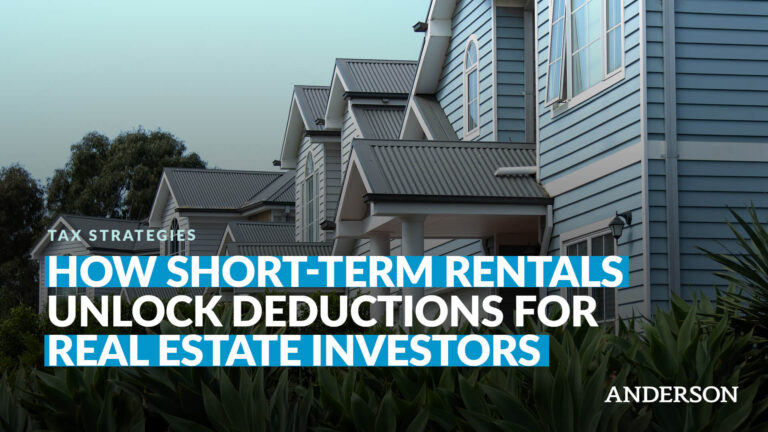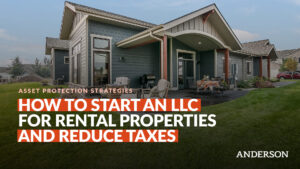Updated October 3, 2021
Real estate investment clubs are a place for real estate investors to network and develop their business. Many of these real estate investment clubs also offer ongoing education about real estate and real estate investing. Moreover, many of these clubs are local, offering members opportunities in the local real estate market, both in terms of residential and commercial properties.
4 Benefits of Joining a Real Estate Investment Club
- Networking
- Education
- Discounts
- Support
- Structure
Some real estate investment clubs or real estate investors associations are also members of a larger parent organization, such as the National REIA (Real Estate Investors Association). As such, members of a local REIC or REIA are granted the same rights and privileges as other members around the country, which may include additional vendor discounts and invitations to special annual events and seminars.
But members in a local real estate investment club won’t have to travel far in order to reap the membership rewards in the REIC near them. Real estate investor clubs generally have monthly meetings in a central, accessible location. These monthly club meetings will usually feature a presentation from a real estate professional on a specific topic in real estate, such as financing without money, flipping homes, or managing multi-family properties.
Before and after the presentation, attendees will have the opportunity to mix and mingle with real estate professionals. These times are the perfect opportunity to meet another lender, property manager, seller, or mentee. Additionally, many REICs have online forums where members can post their questions and get additional guidance. There may also be annual social events that facilitate networking, allowing members to expand their real estate business network.
4 Benefits of Joining a Real Estate Investment Club
Networking
Real estate is one area where you really need a network to succeed. Without a network, it becomes harder to find good deals—both in terms of properties and financing. With more real estate professionals in your network, you’ll have a wider range of options in terms of lenders, property managers, and sellers to work with. Networking is mutually beneficial as well, and can exponentially increase the reach of everyone involved. When you meet a new investor or real estate professional, you essentially meet everyone they know as well. Invest in some professional business cards and get ready to pass them out whenever you go to meetings.
Education
Many of the individuals who join an REIC are not full-time real estate professionals. In fact, many of them still have their own jobs and careers outside of real estate. This is why many REICs hold their meetings at night or on weekends. There is a wide spectrum of experience in terms of how much these side-hustling investors know, but in general they can all benefit from the information provided at monthly meetings. It’s also a chance for those who know more about one specific area of real estate (such as flipping homes) to learn about other topics like landlord tenant law, which allows them to start rounding out their real estate experience and activities.
Discounts
Many (though not all) real estate investment clubs or associations have partnered with specific vendors to provide their members with discounts. These discounts may or may not be built into the price of membership, but either way, members will benefit. Examples of discounts include sizable rebates at home improvement stores, discounted services by property management companies, and reduced prices for property management software applications. Background and credit check services, junk hauling, rental cars, and office supply store discounts are just a few of the other typical perks. Anyone who wants to seriously get into real estate will realize that it becomes a business, and a well-run business has different departments. Joining your local REIC will help you reduce some of those operating costs.
Support
As mentioned, many REICs have an online forum or community for posting questions and getting feedback. Some of them also offer weekly or bi-monthly panels, while others provide a video library of previous presentations. All of this information and the community around it can provide invaluable support for aspiring real estate investors. Many people who want to get involved in real estate—whether they want to buy and sell homes or obtain a rental property—find themselves surrounded by a critical, disbelieving culture of working professionals who don’t believe in passive income. As it turns out, real estate isn’t really passive income after all, but it can build great wealth. Those who get there are surrounded by like-minded individuals who want to make the same journey, and guided by successful real estate investors who have done it before.
Structure
Regular club meetings can help people make the right choice between action and inaction. Without the real estate investing clubs and associations, many local investors would have given up on the idea of becoming real estate entrepreneurs. To that end, an investing club is more than a place to get investing advice—the organizations regularly help its members take concrete steps toward investing in real estate, rather than letting inaction take its course. A journey of a thousand miles begins with a single step (the old saying goes), and an economic investment like real estate is no different. Potential investors may be a like a deer caught in the headlights as they think about all the complexities around building a real estate business, but once they start going to meetings, one action leads to another.
How to Join an REIC
In most cases, there is no lengthy process to join a real estate investment group or local chapter of your REIA. Again, remember that not all local real estate investment clubs are members of the National REIA, and not all of them are referred to as clubs—they may be referred to as associations, or have a different title entirely.
That said, you can find your local REIC by conducting a Google search. Type in your city, followed by the acronym REIC, or even the full phrase “real estate investors club” or “real estate investors association”. This will give you a list of matching search results, and in most cases, the organization you’re looking for will appear first. If it doesn’t, you may see a directory provided by one of the national real estate investing blogs such as BiggerPockets, which will list real estate clubs and organizations in your state.
Another way to find a local real estate investment group is to check the National REIA page and click the “Find a Local Group” button. This will show you a map of local branches of the National REIA, which you can click on to access their website.
If conducting an online search for a local investment group is not your cup of tea, just ask someone you know who is involved in real estate, such as landlords, mortgage bankers, local real estate agents, or even those creative individuals who flip homes on the weekends. Even if they aren’t part of such an organization, chances are they know of one in your area.
Once you’ve located the site of your local real estate investment group or contact information for the REIC, you can either find out where their monthly meetings are held or just sign up on their site. Most REIC sites allow you to pay for your membership with a credit card, and some take PayPal or eCheck payments. If you decide to attend a monthly meeting, you can bring cash, card, or check and pay the drop-in fee. Many clubs will let you apply your drop-in fee toward the membership fee if you like what you see, though many will only allow you to drop in one time before requiring full registration.
Major Real Estate Investment Clubs
There are Real Estate Investment Clubs in many locations throughout all 50 states.
The Los Angeles Real Estate Investors Club, LLC is a great place to network and grow for real estate professionals in the sunny Southern Californian City of Angels. General meetings are the second Thursday of every month, starting at 6:30 for networking and browsing the booths of the vendor expo, followed by a presentation at 7:30. There is also a Gold Membership level for more serious investors, along with mentoring programs.
The Real Estate Investors Association of New York City is for Big Apple residents who want to develop a real estate enterprise in the city that never sleeps. The NYREIA is a member of the National REIA, and it’s the only chapter in New York. A Core Membership in the NYREIA provides free access to the regular meetings, along with vendor discounts and access to online courses.
The Chicago Creative Investors Association is a place for residents of the Windy City to network and learn about real estate. Monthly meetings are often at the Embassy Suites Hotel in Lombardy, and are free to members. Members also get access to the vendor discounts offered by the National REIA and educational programs and workshops offered by the CCIA. The CCIA is also a member of the Illinois Rental Property Owners Association (IRPOA), which advocates on behalf of property owners.
The Bay Area Wealth Builders Association is a great place for residents of San Francisco, Oakland, San Jose, and the general Bay Area to congregate and learn more about creating cash flow, buying and sell foreclosures, retirement strategies, and more. The BAWB has a little more of a laid-back, grassroots feel to its operations, occasionally hosting its monthly meetings as morning brunches in restaurants around the Bay—but you can be sure members will get savvy tips about the most eyed and envied real estate market on the West Coast.
Join Your Local Real Estate Investment Club Today
Many individuals who want to buy and sell properties or build up a portfolio or rentals can get intimidated. But real estate investing for beginners doesn’t have to be a difficult process to navigate, especially when you have a supportive environment of like-minded people. No matter where you live, there is likely a real estate investing club or real estate investment association near you. The owners, founders, and managers of these clubs also benefit from expanding their network and sharing their knowledge with others, so you’d be hard-pressed to find a locale in the US where some entrepreneurial individual hasn’t started a wealth-building organization.
Take advantage of this local opportunity and join the club! As mentioned, many of these clubs are geared toward the local real estate market, inviting speakers to share their expertise about the commercial and residential properties and strategies in the immediate vicinity, while giving members some lasting strategies for real estate asset management. There are no onerous requirements to joining your local REIC, and you don’t need to even be fully involved in real estate. You just have to be willing to learn.
Bonus Video
Receive a detailed risk assessment to assist in lowering problem areas that could wipe out all of your assets with one wrong move. Speak with an Anderson Professional Advisor to get your FREE Strategy Session.
Limited-Time Offer: ($750 value.)
















